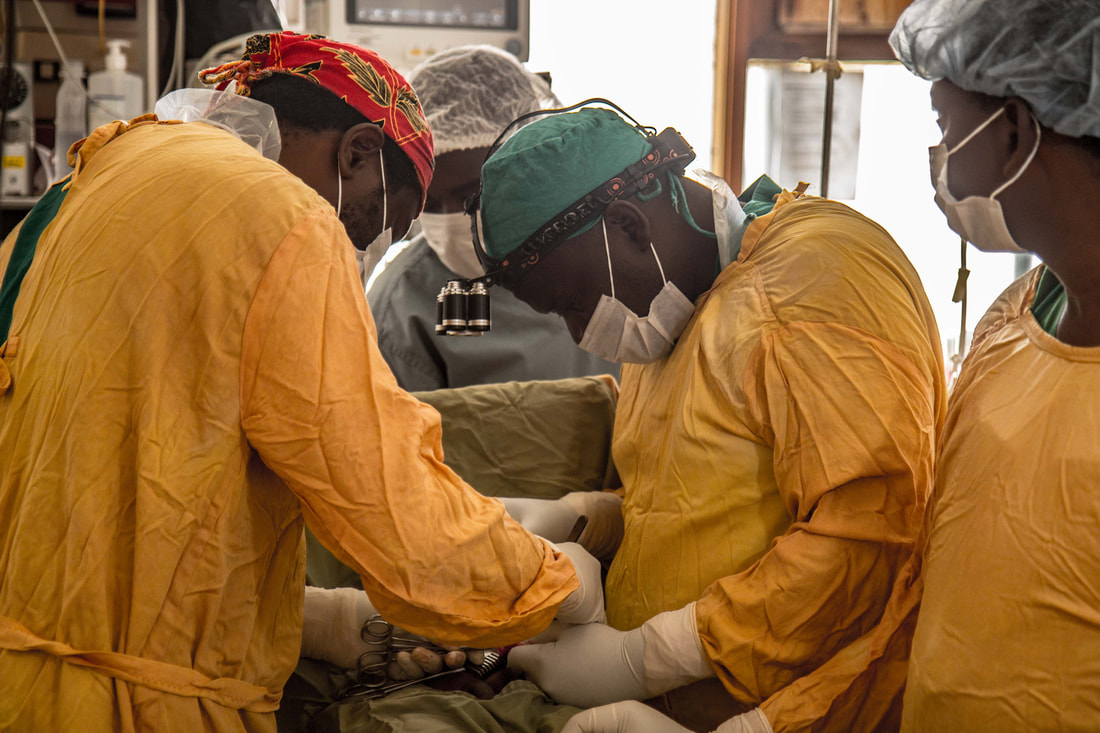|
So, what are the National Surgical Obstetric and Anaesthesia Plans (NSOAP) everyone is so excited about and why are they a big deal? Last week, at the market, my Mum fell and broke her arm. After calling the emergency services, she had to wait for 30 minutes, lying on the ground. People immediately gathered around her, shouting instructions: “she needs to stand up”, someone called out. “She can’t be moved, the emergency services advised”, explained the woman who had phoned, starting a public debate on how good or bad the health system in the country was.
I phoned my Mum the following day to check how she was. After showing me a huge and rather ugly bruise, she complained about the length of time she had needed to wait until the ambulance appeared, and the hours she had spent at the accident and emergency room once she was taken to the hospital. —They checked thoroughly, in case they had to operate, but I was lucky and the fracture didn’t need an operation —she said with relief. —I guess these are the advantages of having a health system in which surgery is always available for patients who need it —I pointed out. —Is not that the norm? —It might be in Europe, but not in the countries we work with. That is why places like Zambia or Tanzania are currently implementing this thing called a National Surgical Obstetric and Anaesthesia Plan (NSOAP). —And, what is that? —my mum asked curiously. —It is a plan developed by the Ministry of Health that coordinates the delivery of all health services for surgical, obstetric and anaesthesia care across the country. Zambia is actually the first country in the world to put the NSOAP into action and SURG-Africa is supporting the Government to implement some elements of it and to carry out a mid-term evaluation of the plan. —I understand, but is access to surgery such a big issue there? —Most people in sub-Saharan Africa don’t have access to safe surgical services. For example, they might need surgery for complications during childbirth, for trauma from accidents, or for treating cancer. If someone there falls and breaks an arm, they wouldn’t really have easy access to surgery and might suffer the consequences of it for life. My mum grimaced with pain. —And what’s the N…, what did you say? —NSOAP —With the NSOAP, what will change? —Well, that is the idea. It aims to change things by putting in place a structure that considers the full picture of surgical needs, anticipates what is needed in the health system to meet these needs, and channels money to gather the necessary resources for surgical care. And to do this fully, countries need to include rural hospitals as well, not just those in cities. In Malawi, for example, most of the population lives in rural areas. Imagine what happens to people when they need surgery and their nearest hospital can’t provide them with it? They have to travel to a larger hospital further away. But there might not be an ambulance available to get them there. In emergency situations, such as a problem in childbirth, or a bad traffic accident, this gets really serious. See Mum, for your emergency, an ambulance came, collected you and drove you to the hospital. When they discharged you, the ambulance took you back home. This just doesn’t happen in many places around the world. —Will it happen with the NSOAP? Will people have access to all they need through this plan? —Well, as a first step, it makes surgery a priority nationwide and that is already a good start. Then, these countries need to implement it with all relevant people. Countries make commitments to invest resources in surgery, identifying areas of need through their data systems. In the end, the aim is to positively impact on the population’s ability to get the surgical care they need. My mum looked at her arm, thoughtfully, for a few seconds. Finally, she asked: —And, how do you say it is called again? Soap what?… —NSOAP, Mum. —It certainly sounds like it is a good plan to have in every country. But I really hope it is easier to turn it into a real change, than to remember the name. Mairéad Finn is a health systems researcher at the Institute of Global Surgery, RCSI, and Adjunct Assistant Professor at the Centre for Global Health, Trinity College. Antonio Jaén is our Communication Specialist. Learn more about him here.
1 Comment
6/6/2023 01:43:26 pm
With the aim of making healthcare more accessible and equitable, what are some key strategies outlined in the NSOAP that can help improve surgical and anaesthesia services in low-resource settings?
Reply
Leave a Reply. |


 RSS Feed
RSS Feed